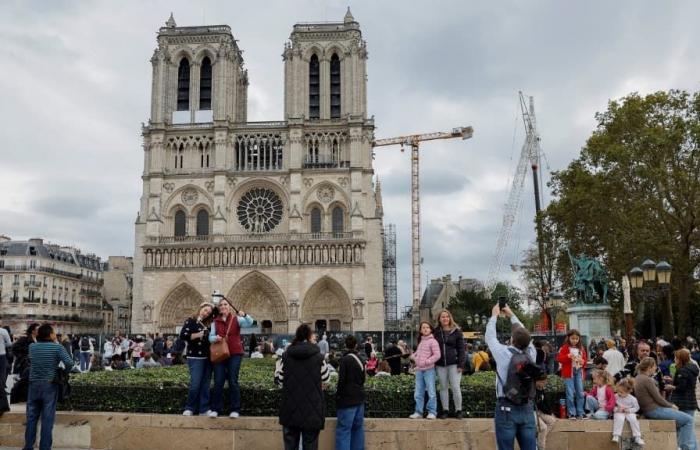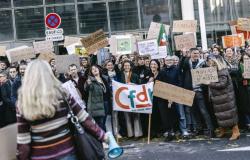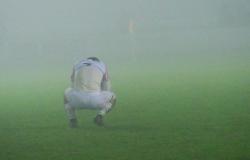The archpriest of the cathedral believes that the place offers worshipers and visitors alike a “moment of peace” on which it is inconceivable to put a price.
In less than a week, the faithful and visitors will once again be able to pass through the doors of Notre-Dame de Paris. During the reconstruction of the monument, the question of the entrance fee to the cathedral arose in particular: the Minister of Culture, Rachida Dati, suggested last October to charge visitors for entry, the revenue could then allow the maintenance of the monument.
A few days before the reopening planned with great fanfare this Saturday, December 7, the rector-achipriest of the cathedral, Monsignor Olivier Ribadeau-Dumas, spoke on France Inter why he was opposed to this idea.
“There is a law of separation of church and state, because the churches were confiscated from the Church, and the communes and the state undertook to maintain them. There is something surprising to charge for entry to the cathedral, he declared.
A need for peace that “cannot be bought”
In her proposal, the Minister of Culture had made it clear that paid entry would only concern visitors, while the faithful could continue to enter freely. A distinction which is not so simple to make according to Monseigneur Ribadeau-Dumas.
“I don't know the difference between a visitor and a faithful. I don't know, whoever enters the cathedral, will he stop to pray, or not. And if we enter as a visitor, and we go out as faithful, what does it do? The second thing is that I believe that in our society, we need places in which we can live a moment of peace, a moment? of interiority, and all that, you can't buy not.”
He also recalls that the reconstruction of the cathedral was possible thanks to general mobilization. “This cathedral was rebuilt by the generosity of everyone, the generosity of 339,000 people, and how could we make those who contributed to renovating this cathedral pay? So we must find other means,” he concludes.
The diocese of Paris itself recalled at the end of October the principle of “free entry into churches”, stressing that the very identity of religious buildings was based on the fact of welcoming “unconditionally and therefore necessarily free every man and woman, regardless of their religion or belief, their opinions and their financial means.”
Faced with the reactions generated by her suggestion, Rachida Dati defended herself during the States General of Religious Heritage. “I did not have the impression of commodifying religious heritage, far from this idea. I am no longer commodifying this place, which so many French people need to reflect, to find a little tranquility and serenity,” she declared.






